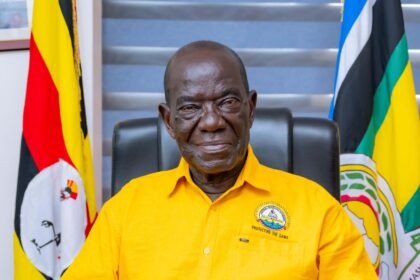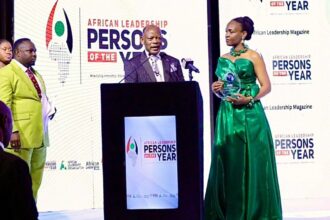Greetings. I am happy, again, to be part of this forum to discuss the common future of Africa. Whenever I attend such fora, I get one problem. This is the problem of discussing and handling of African issues in a fragmented way ? just picking one issue or two issues and highlighting those for some time and, then, after some time, picking another bunch of issues and doing the same with them. In the 1960s, it was a fashion to talk about “rural development” as if rural development could occur in isolation from other phenomena. Then, it became a fashion to talk about “education”, again, in isolation from the other factors. At other times, there is talk about health, women issues, children rights, etc., but always in a fragmented way.
I have been watching this for the last 50 years. Our Movement, the NRM (National Resistance Movement), utilizing the advantage of the long experience, eventually, distilled 10 strategic bottlenecks that have been a blockage to Africa’s growth and socio-economic transformation. In order not to forget, there was also talk of “sustainable development”. What were the ingredients of this “sustainable development”? Everybody had differing packages of the relevant ingredients. Even the Millennium Development Goals did not solve this problem. These, you remember, were to:
(i) eradicate extreme poverty and hunger;
(ii) achieve universal primary education;
(iii) promote gender equality and empower women;
(iv) reduce child mortality;
(v) improve maternal health
(vi) combat HIV/AIDS, malaria, and other diseases
(vii) ensure environmental sustainability
(viii) develop a global partnership for development
“Eradicate extreme poverty and hunger” how? The MDGs did not say.
Utilizing the experience of the last 50 years, therefore, we identified the 10 strategic bottlenecks. These are:
- Ideological disorientation. The main manifestation of ideological disorientation is the opportunistic misuse of identity at the expense of the genuine interests of the people. Such genuine interests should answer the question: “Who will guarantee my prosperity?” “Is it the members of my tribe or my religious sect that will do so or is it the members of the “other communities?” “Who will buy my milk, my beef, my coffee, my bananas or my tea?” Ideological disorientation only emphasizes identity and eclipses interests or even acts against the interests of the people. This generates the sectarianism of tribe or religion you have seen causing so much damage.
- As a consequence of number one above, many African countries end-up with weak States ? weak armies, civil services, etc., because they are not based on merit or are not ideologically oriented with the right attitude.
- The under-development of the human resource (lack of education, lack of skills and poor health of the African populations).
- Under-developed infrastructure (no electricity, no modern roads, no modern railways, no ICT backbone, no piped water, etc.); this makes the costs of production in the economy go up and cannot, therefore, attract investments so as to expand production and create jobs.
- As a consequence of number 4 above, there is no industrialization and, therefore, Africa has continued to suffer haemmorhage through the loss of money and jobs, being a donor to other continents by continuing to export raw-materials where we get only 10% of the value of our products (coffee, cotton, minerals, timber, etc., etc).
- The problem of a fragmented African market on account of colonialism. The 53 former colonies, the modern African States, are, individually, too small markets to attract, retain investments and cause them to thrive. China, which started liberalizing and opening up in 1978, (China started participating in the UN system in 1982) has since attracted a total of enterprises worth US $ 2.6 trillion. The whole of Africa in that same period has only attracted enterprises worth US $0.65 trillion. (Source: UNTAD Website). Yet China is still a communist country while most of Africa is now “democratic” and operating really market-led economies. What is the problem? One of them is a fragmented market. The other bottlenecks also play a role in discouraging and stifling investments. The other good examples are poor infrastructure and a non-skilled workforce. Fortunately, we have done a good job on this by creating ECOWAS, EAC, COMESA and SADC. We are aiming at the common market of the whole of Africa. Unfortunately, some actors continue to allow non-tariff barriers. Yet the growing Purchasing Power of Africa would have attracted investments if the African market was really integrated.
- The under-developed services sector ? tourism, hotels, banking (financial servicing ? expensive money, etc), insurance, professional services (e.g. doctors ? hence medical tourism to India, etc).
- The under-development of agriculture ? no complete commercialization of agriculture (still alot of subsistence agriculture – 68% in the case of Uganda), no irrigation, low use of fertilizers, poor disease control, poor soil conservation, poor seeds and breeding stock, etc. The population in the agricultural sector has, therefore, no money and their purchasing power is low.
- In the 1960s and 1970s, there was the mistake on our part of nationalizing private sector assets ? banks, shops, farms, etc. This interference with the private sector by policy or by corruption has also been another bottleneck. The private sector is the most efficient engine of growth.
- Suppression of democracy in the past has also been another bottleneck.
I would, therefore, appeal to their Excellencies, the Heads of State, to look at the totality of the challenges we face and if they are convinced by this analysis to instruct the public servants in our individual countries and the continental bodies that service the African Union (AU) to look at the problems we face in a comprehensive manner.
All this must lead to socio-economic transformation of the African population from the various types of pre-capitalist ? modes of social organizations to middle-class, skilled working class societies. We cannot go on with the vague slogans of “sustainable development”. How can somebody be “sustainably” a child? Nature dictates that child must transform into teenager, teenager into youth and youth into adult. There must be quantitative growth and qualitative transformation for an organism to grow in a healthy way.
I thank you.
Do you have a story in your community or an opinion to share with us: Email us at Submit an Article






